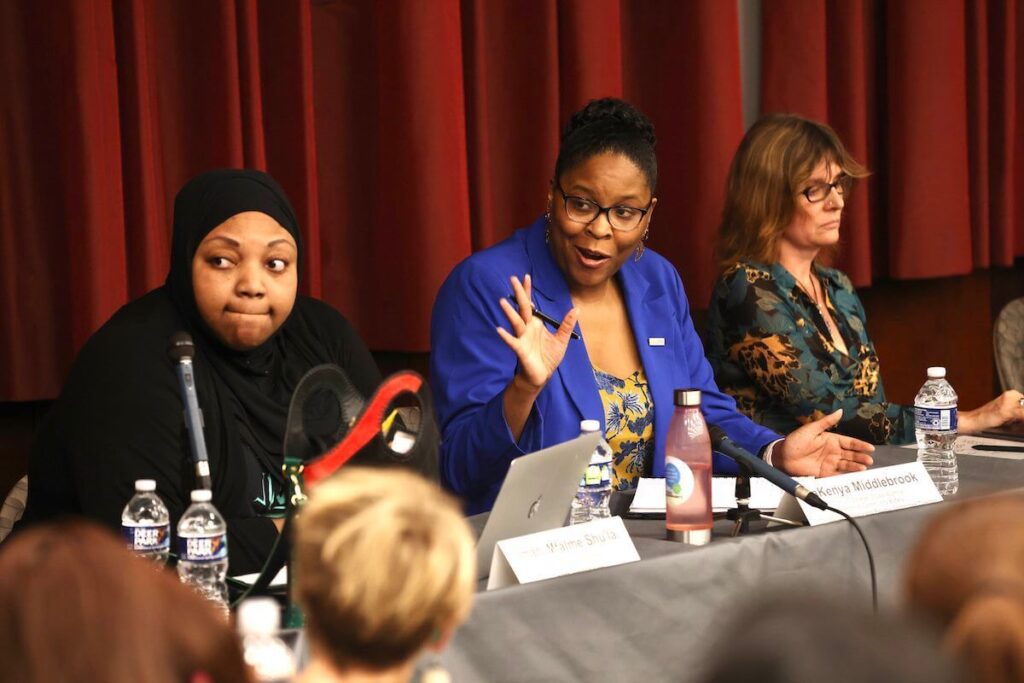Revising policing in the city of Knoxville is a costly endeavor that requires honest policy assessment, additional manpower, understanding from the community and more funding, a group of panelists said during a presentation at the College of Law last week.
The College of Law’s Student Bar Association, with assistance from Interim Associate Dean for Diversity, Inclusion, and Community Engagement Michelle Kwon, hosted four community leaders on April 5 to discuss “The Future of Policing in Knoxville.”
Knoxville Police Chief Paul Noel, UT Sociology Professor and criminologist Michelle Brown, Director of Community Safety LaKenya Middlebrook, and Community Defense of East Tennessee Director Imani Mfalme Shu’la each shared views on the challenges and opportunities that Knoxville faces.
Key among the challenges for Noel is recruiting officers to replace the 25% of his force who are of retirement age, and finding recruits who are “problem solvers” that possess the level of compassion the job requires.
Brown, whose research focuses on abolition movements surrounding prisons, police, bail, and capital punishment, said it’s critical that we overhaul criminal justice throughout the United States. Particularly within Knoxville, there are too few agencies offering crisis response as an alternative to police responders, she said.
Without a concerted commitment to change policing, Shu’la believes Black Knoxville residents will continue to face unfair treatment. She referenced a 2016 case of a man she said was unjustly beaten by Knoxville police officers who remain on the force, and called for an overhaul of the policies that enable that to happen.
“Revisiting what we expect and need law enforcement to do and then preparing them to actually do that” should be the priority, Middlebrook said.
Student Bar Association moderator Austin Wall said students organized the event in response to the death of Tyre Nichols’, whose deadly encounter with five Memphis police officers led to public outcry.
The panelists “represented key constituencies” that are each vital to the policing discussion, Kwon said.
“The goal was to create an opportunity for our campus community and the larger Knoxville community to hear a meaningful conversation about police-citizen interactions and police accountability from a range of perspectives,” she said.
“I think we were able to do that.”
